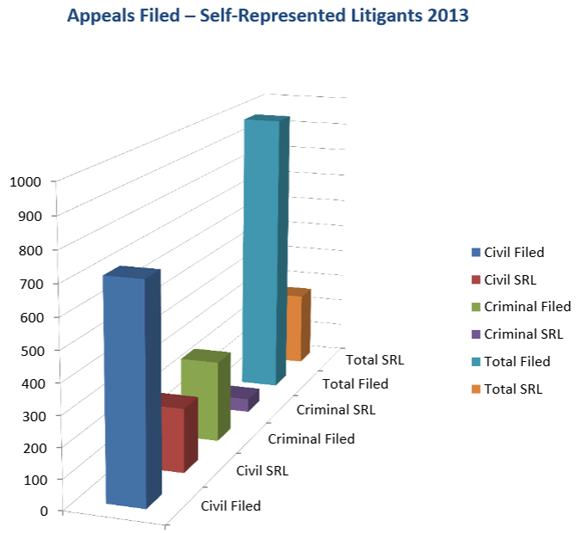British Columbia’s new top judge is ringing the alarm bells on access to justice.

In his first
annual report since assuming his post at the British Columbia Court of Appeal, Chief Justice Robert Bauman cites statistics that show rising levels of self-representation at the appeal court level.
Last year, the number of civil and criminal appeals heard in the province involving self-represented litigants rose, respectively, by seven per cent and four per cent. The court saw 24 per cent of civil appeals and 11 per cent of criminal appeals involving at least one self-represented litigant.
“These are extremely troubling statistics,” Bauman writes. “They demonstrate just how challenging access to justice is to many British Columbians, even in the Province’s highest Court.”
Laura Track, legal director at the West Coast Legal Education and Action Fund — a not-for-profit advocating for women’s equality through legal initiatives — says it “boggles the mind” how litigants without any legal training can attempt to make the complex legal arguments required at the court of appeal level.
“It’s difficult enough to represent yourself at a trial, where you’re presenting the facts of your case. But at the Court of Appeal, you’re trying to show that the judge below erred in law,” she says. “Despite their best efforts, quite a lot of court time is used inefficiently because the litigant is simply not prepared to make these kinds of complex legal arguments.”
The issue is most acute in family law cases, where 38 per cent of appeals heard involve a self-represented litigant. West Coast LEAF has argued that deteriorating access to justice in family law impacts women disproportionately.
“Without adequate legal representation, women are losing custody of their children,” Track told
Legal Feeds in February. “They’re giving up valid legal rights to support a fair division of property. They’re being victimized by litigation harassment, where an abuser uses the litigation process to continue patterns of abuse and coercion and control.”
Bauman cites groundbreaking work done by the National Action Committee on Access to Justice, chaired by Supreme Court of Canada Justice Thomas Cromwell.
The committee, struck in 2008, issued its
final report last October. The report calls for increased funding to legal aid — which is generally only available to those earning less than $18,000 per year — and measures to reduce the cost of legal services and the length of proceedings.
While the report lays out issues and principles, it leaves implementation in the hands of government. West Coast LEAF, meanwhile, has
proposed increased funding that would allow a number of women’s groups — on a pilot-project basis over two or three years — to hire in-house counsel.

 In his first annual report since assuming his post at the British Columbia Court of Appeal, Chief Justice Robert Bauman cites statistics that show rising levels of self-representation at the appeal court level.
In his first annual report since assuming his post at the British Columbia Court of Appeal, Chief Justice Robert Bauman cites statistics that show rising levels of self-representation at the appeal court level.